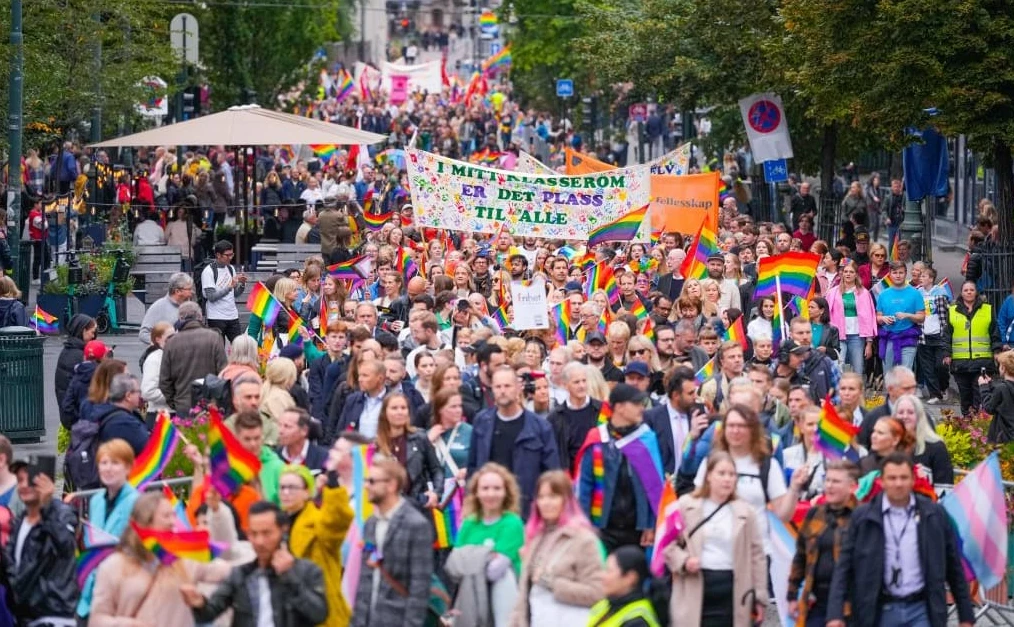Anti-LGBTQ violence hits 'new high': EU report

Stay tuned with 24 News HD Android App

Violence and harassment against LGBTQ people in Europe have reached a "new high" in the past few years, according to a survey published Tuesday by the European Union's rights agency.
Even as more LGBTQ people feel able to be open about their identities, the discrimination they face "remains high", with "more violence, harassment and bullying" than before, the EU Agency for Fundamental Rights (FRA) found.
In one of the biggest surveys of its kind, FRA questioned more than 100,000 LGBTQ people in the 27 EU member states, as well as Albania, North Macedonia and Serbia.
The survey found that 14 percent of respondents reported experiencing a physical or sexual attack in the five years before the survey was conducted in 2023, with intersex people facing most violence.
That represents a rise of three points since FRA carried out a similar survey in 2019.
In a sign of "gradual progress" in openness, 36 percent of those surveyed experienced discrimination in the 12 months before the survey, down from 42 percent reported in 2019.
The findings are a "clear red flag" even though they "present a paradox," said FRA director Sirpa Rautio.
"On the one hand, people are becoming more open about their sexual orientation," Rautio said in the report.
"On the other hand, everyday harassment, bullying in schools, hate crime and alarmingly high rates of violence tell another story," she warned.
"Most (LGBTQ people) still avoid holding hands with their partner in public for fear of being attacked," a statement accompanying the report said.
School bullying worsened
The Vienna-based agency said that incidents are severely underreported.
More than one in 10 LGBTQ people had experienced violence in the five years before the survey, representing a slight increase compared with 2019.
And hate-motivated harassment now affects more than one in two LGBTQ people, up from one in three in 2019.
Bullying at schools has drastically increased, as more than two in three respondents said they had been bullied, a steep increase compared to one out of two in 2019.
In Hungary, where the rights of LGBTQ people have been curbed in recent years, only three percent of those asked said their government "combats prejudice and intolerance" towards them, the lowest percentage in the bloc compared with an EU average of 26 percent.
To better tackle anti-LGBTQ disinformation campaigns and online hate, FRA called on member states to "address the risk of bias in algorithms and ensure the accountability of digital platforms under EU law".
